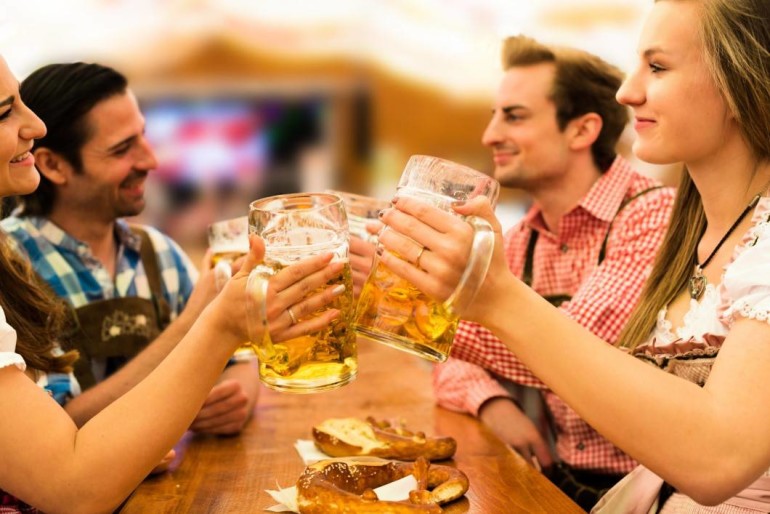Sponsored Listings:
It is the largest festival in the world, reuniting more than 6 million tourists each year in the city of Munich, Germany; and that is without adding up the many others who celebrate Oktoberfest in several European cities and the rest of the world.
Oktoberfest is one of the oldest festivals in recent history, having been held since 1810. That year, King Ludwig I of Bavaria married Therese of Saxe-Hildburghausen, and they celebrated it at the Theresienwiese (“Theresa’s Meadow”) in the company of the people. To close the festival, they organized a series of horse races, and the success was so big, that they decided that the event would be repeated every year at the same time.
These celebrations were completed with a parade where more than 8,000 people dressed in traditional costumes and walked the 7 kilometers that separate Maximilian Street from the Theresienwiese, all accompanied by folk music and elegant carriages.
If that is the origin of Oktoberfest, you may be wondering what role beer plays. Well, even though today beer is the main attraction of this popular festival – to the point that it was dubbed as “the beer festival” – the reality is that this drink was not seen in Oktoberfest celebrations until 1892. That was the first year in which they began to use those large German mugs in which copious liters of beer were served.
Nowadays, more than 7 million liters of beer are consumed at this festival and a popular tourist event. Of course, Oktoberfest is not for everyone. In fact, only those brewed within the limits of Munich and that has 6% alcohol can be served. This is the case of the Augustiner-Bräu or the Paulaner beers.
Even so, behind this massive event, Oktoberfest is also a huge boost for tourism given that year after year, for the two weeks that this festival takes place, the city of Munich multiplies its population five times.
This translates into hotels running at 100% occupancy and job creation, with over 8,000 permanent and 5,000 temporary workers, including waiters, chefs, traders, musicians, technicians or security personnel hired for the occasion.
This year’s Oktoberfest was the 186th and it is estimated that there were over six million visitors, according to the festival director Wiesnchef Clemens Baumgärtner. During the first week of the tourist event alone the guests have eaten 72 oxen and 25 calves. The beer consumption had also remained stable compared to the past years, despite the once again increased beer price (between 10.80 and 11.80 euros).

However, there is also the darker side of the festival. In the first few festive days alone, the Munich police headquarters registered several homophobic attacks. There was also more sexual harassment than usual. 25 sexual offenses were registered in the first festival week. It was not uncommon for these crimes to occur under the influence of heavy alcohol.
The emergency rooms in downtown Munich found some astonishing blood alcohol levels. “So far, we have seen 73 patients with alcohol poisoning in connection with a visit to the Oktoberfest,” said Markus Wörnle, head of the internal medicine emergency room, before the last festival weekend. Up to this point, a festival visitor had had the highest value with 3.7 per mille.
Source: tourism-review.com










